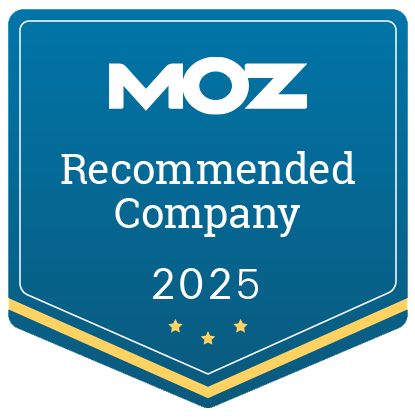“Near me” searches were once a shortcut to ranking higher in local search results. Businesses stuffed these keywords into their content, business names, and even their meta tags, hoping to climb the rankings. But as Google’s algorithms changed, so did the rules of the game.
Now, the big question is: Do ‘near me’ keywords still work, or have they become outdated?
What is Local SEO?
Ranking highly with local SEO is all about making sure your business shows up when people search for services or products in their area. Think of those moments when you Google something like “coffee shop nearby” or “best pizza in town”—that’s where location SEO comes into play! Its primary goal is to connect users with businesses that are physically close to them and match their search intent.
Over time, Google has become smarter at understanding user intent. It no longer requires someone to type “near me” for it to display local results. Simply searching “Mexican restaurant” will trigger nearby options based on your location—even if you don’t specify it.
Who Can Benefit from Local SEO?
If your business relies on local customers—whether they walk through your doors or need services in a specific area—local SEO impacts your visibility and growth.
🏬 Brick-and-Mortar Businesses—Retail stores, coffee shops, salons, and restaurants thrive on foot traffic. When someone searches “boutique near me” or “best sushi downtown,” local SEO pushes your business to users.
💼 Service-Based Businesses—For companies that go to their clients, like plumbers, electricians, and cleaning services, local SEO ensures they appear in searches tied to specific neighborhoods or cities.
🚑 Medical & Wellness Providers—Doctors, dentists, chiropractors, and other healthcare professionals rely on local SEO to attract nearby patients looking for specific treatments or services.
🏨 Hospitality & Tourism—Hotels, attractions, and tour operators need to be highly visible in local searches, especially for out-of-towners who depend on Google to plan their visits.
🛍️ eCommerce Businesses with Local Pickup Options—Even online-first businesses can benefit if they offer in-store pickup or local delivery. Appearing in local search results gives them an edge over strictly digital competitors.
Local SEO Ranking Factors
Google doesn’t just pick businesses at random to display in local search results. It follows a specific set of criteria to determine which businesses deserve to show up at the top.
- Location: The most straightforward factor—how close is your business to the person searching? If someone types “coffee shop,” Google pulls options based on proximity without the user needing to type “near me.”
- Relevance: Your business needs to align closely with the search intent. This means listing your services, categories, and specialties on your website and Google Business Profile.
- Consistency (NAP): Google places a lot of weight on the consistency of your Name, Address, and Phone Number (NAP) across all online platforms. If your Google Business Profile says one thing, but your Yelp listing says another, it can hurt your credibility and rankings.
The Overuse of ‘Near Me’ Keywords – Spam or Smart?
There was a time when sprinkling “near me” into every corner of your website could skyrocket your local rankings. Businesses stuffed it into titles, meta descriptions, and body text, hoping to game the system.
But Google quickly caught on.
Brick-and-Mortar Stores Adding ‘Near Me’ to Their Name
Some businesses took it a step further and added “near me” to their actual business name, thinking it would trick the algorithm. So instead of “Sunny’s Pizza,” you’d see “Sunny’s Pizza Near Me.”
Google responded by cracking down on these practices, especially in Google Business Profiles. Businesses caught using fake or misleading names faced penalties and, in some cases, were completely removed from search results.
Keyword Stuffing and Its Consequences
Keyword stuffing looks awkward and actively hurts your rankings. Google’s algorithms now flag excessive keyword use as spammy, leading to lower visibility in search results.
Here’s what happens when you overdo it:
- It feels unnatural to readers, making them less likely to engage with your content.
- It violates Google’s quality guidelines, which could result in ranking penalties.
- It disrupts the user experience which Google considers when ranking pages.
How to Conduct Local Keyword Research the Right Way
Forget keyword stuffing—successful local SEO is all about understanding what your audience is searching for and meeting that intent through proper keyword research:
- Use Google’s Autocomplete: Start typing relevant phrases into Google and note suggestions. These are based on real searches and can spark great keyword ideas.
- Leverage Your Own Data: Jump into Google Search Console and Google Business Profile Insights. See what terms people already use to find you and build on that.
- Go for Long-Tail Keywords: Instead of broad terms like “pizza place,” aim for specific, location-focused phrases like “best vegan pizza in [City]” or “late-night pizza delivery [Neighborhood].”
- Spy on Competitors: Use SEO tools like SEMrush or Ahrefs to see which keywords your competitors rank for. This helps to highlight gaps in your strategy.
Better Local SEO Strategies Than Relying on ‘Near Me’
“Near me” keywords might still work passively, but if you want consistent results, these tried-and-true strategies are far more effective:
1. Optimize Your Google Business Profile
A fully optimized Google Business Profile boosts your visibility and helps you land in the coveted “Local Pack.”
- Keep your Name, Address, and Phone Number (NAP) accurate
- Fill out all key details—hours, services, FAQs—and upload quality photos
- Respond to reviews to build trust and engagement
2. Build Location-Specific Pages
If you serve multiple areas, create separate landing pages for each city or neighborhood.
Examples:
- “House Cleaning Services in Hartford”
- “Office Cleaning in Stamford”
This makes it easier for Google to connect you with local searches—no “near me” is needed!
3. Use Schema Markup
Adding structured data and different types of schema markup like LocalBusiness schema to your website gives Google structured info about your business (like location and services), helping you stand out in local search results.
4. Encourage Customer Reviews
Reviews impact rankings and build trust. More positive reviews = higher visibility.
- Ask happy customers for reviews post-purchase or service.
- Share review links via email or receipts.
- Always respond to reviews—good or bad.
Pro Tip: Never offer incentives for reviews—it violates Google’s guidelines!
5. Build Strong Local Citations
Get your business listed in reputable directories like:
Consistency matters—make sure your NAP matches across all listings to avoid confusing search engines.
So, Should You Use ‘Near Me’ Keywords?
“Near me” keywords aren’t totally obsolete—but they aren’t the SEO magic bullet they once were. Google has become much better at understanding search intent and user location. It doesn’t need users to type “near me” to return local results. Instead, it focuses on the context of the search and the quality of the business listing.
If “near me” fits naturally into your content, that’s fine. But forcing it can backfire, making your content sound awkward and potentially triggering Google’s spam filters.
Need Local SEO Help? Let’s Get Started
Still not seeing the local search results you want? Zero Gravity Marketing can help you fine-tune your local SEO strategy to bring in more foot traffic, calls, and online bookings—without relying on outdated tactics.
Ready to improve your local search presence? Contact us today for a free consultation and to learn more about our local SEO services.












